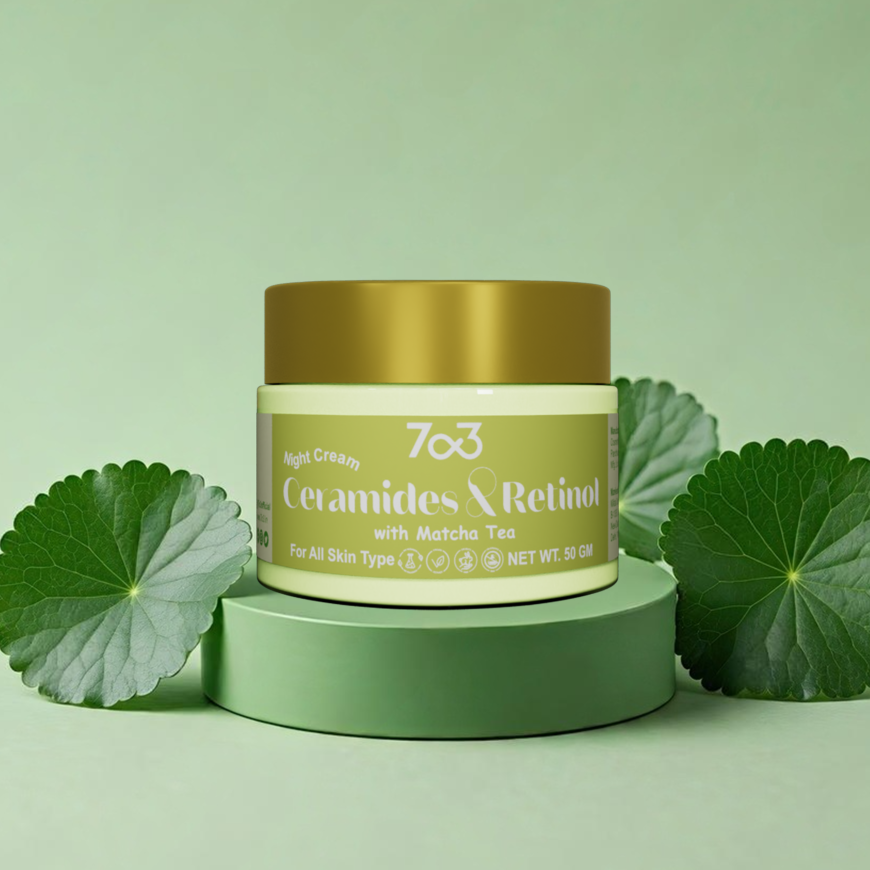Organic Skincare Products and Their Skin-Loving Benefits
Discover the benefits of organic skincare products and how to choose the best ones for your skin naturally.

When caring for your skin, the closer you are to nature, the better. Organic skincare products are crafted with raw, unprocessed ingredients that retain their natural healing properties. Unlike synthetic alternatives, which may offer instant results with long-term side effects, organic skincare works holistically, promoting overall skin health over time.
These products are gentle enough for all skin types—oily, dry, sensitive, or combination. Thanks to their non-toxic formulations, they rarely cause irritation or allergic reactions. Moreover, many are infused with naturally occurring antioxidants, vitamins, and minerals that nourish your skin while protecting it from environmental stressors like pollution and UV damage.
From Garden to Glow: How Organic Skincare Is Made
An organic skincare product's journey begins with soil free of harmful chemicals and pesticides. Ingredients like herbs, flowers, fruits, and nuts are grown sustainably and harvested carefully. These elements are then cold-pressed, distilled, or extracted using natural methods to retain their complete nutrient profile.
There are no artificial fragrances, colors, or preservatives. Instead, organic products may use natural stabilizers such as Vitamin E or rosemary extract to keep the product fresh. This ensures that every bottle, jar, or balm is as close to its natural source as possible—pure, potent, and powerful.
The Impact of Organic Skincare on Your Health and Environment
By choosing organic skincare, you're not just taking care of your skin but contributing to a cleaner, greener Earth. These products are biodegradable and typically come in eco-friendly packaging. Brands committed to organic principles often go further by adopting cruelty-free practices, refraining from animal testing, and supporting fair trade sourcing.
Health-wise, the absence of endocrine-disrupting chemicals like parabens and phthalates makes a massive difference. Regular exposure to synthetic compounds in conventional skincare has been linked to hormone imbalances, skin conditions, and long-term health risks. Organic skincare eliminates that concern, offering peace of mind and visible results.
What to Look for in Organic Skincare Products
Before tossing a product into your cart, becoming a label detective is essential. Not all products labelled "natural" or "green" are organic. Many brands use these buzzwords to appear eco-conscious without the certifications to back it up.
Look for labels that state "Certified Organic" from reputable organizations to ensure authenticity. Ingredients should be listed in INCI (International Nomenclature Cosmetic Ingredient) format, and the fewer synthetic additives you see, the better. A real organic product will always be transparent about what's inside—and what's not.
Creating an Organic Skincare Routine That Works
An effective skincare routine doesn't have to be complicated—it just needs to be consistent and clean. Start with a gentle cleanser from castile soap or herbal infusions to remove dirt without stripping your skin's natural oils. Follow it with a floral toner like rosewater or witch hazel to balance pH levels.
Next, nourish your skin with a lightweight serum packed with plant-based antioxidants. Lock in hydration with a moisturizer containing cocoa butter, jojoba oil, or calendula. And don't forget sunscreen—yes, there are mineral-based organic sunscreens, too, made from zinc oxide and titanium dioxide.
Weekly treatments like clay masks or exfoliators made from oatmeal, almonds, or sugar help detoxify and revitalize your skin naturally.
Common Myths About Organic Skincare—Busted
It's a common misconception that organic skincare is less effective than its chemical counterparts. Many organic products offer superior results, mainly when used regularly. The difference lies in their approach—organic products may take a little longer to show results, but they work with your skin, not against it.
Another myth is that organic skincare is too expensive. While it's true that these products may come with a slightly higher price tag, the quality of ingredients, ethical practices, and long-term benefits justify the cost. Moreover, a little often goes a long way with concentrated, natural formulas.
Why Your Skin Will Thank You
Making the switch to organic skincare is a gift you give to yourself. Over time, you'll notice fewer breakouts, a more even tone, and a natural glow that doesn't come from harsh acids or synthetic lighteners. It's like feeding your skin a clean, green diet—and the transformation is as visible as it is felt.
More importantly, this change encourages mindfulness. You begin to pay attention to what you apply to your skin and how you treat your body and the environment. Skincare sparks a lifestyle shift, a ripple effect that starts with a cleanser and extends into your everyday choices.
FAQs
Are organic skincare products better for sensitive skin?
Yes, they usually are. Without artificial fragrances and harsh chemicals, organic products are gentler and less likely to cause irritation or breakouts.
How long does it take to see results from organic skincare?
Typically, you'll start noticing improvements in 2–4 weeks, depending on your skin condition and consistency of use.
Can I make my organic skincare at home?
Absolutely. Many DIY recipes use ingredients like honey, oats, and avocado. Just ensure you store them properly and avoid cross-contamination.
Are all-natural and organic the same thing?
No. "Natural" isn't a regulated term. Only products certified organic meet strict guidelines for ingredient sourcing and production.
Is there organic skincare for oily or acne-prone skin?
Yes! Ingredients like tea tree oil, green clay, and apple cider vinegar work wonders for managing oil and clearing breakouts.
Do organic skincare products have a shorter shelf life?
They might, especially if they lack synthetic preservatives. But many contain natural alternatives like vitamin E or rosemary extract to stay fresh longer.
Conclusion
Organic skincare products aren't just a beauty choice but a lifestyle. They offer clean, effective, and environmentally responsible ways to care for your skin. Whether you're just starting your skincare journey or looking to switch things up, going organic is a decision your skin and the Earth will thank you for. Let nature's wisdom guide you, one nourishing drop at a time.
